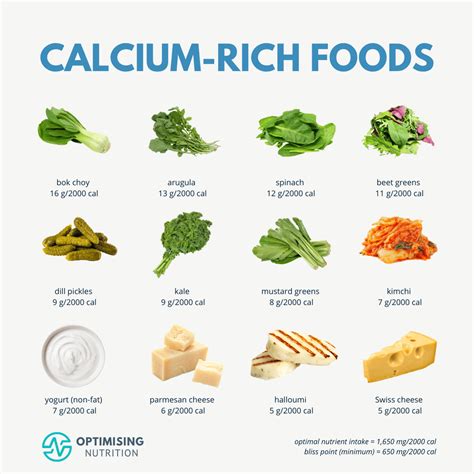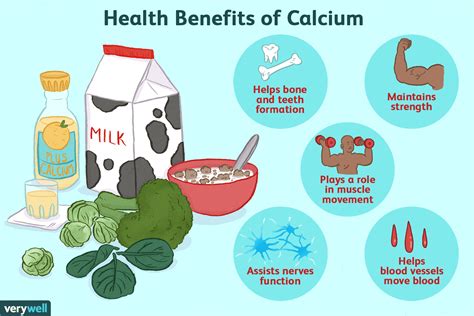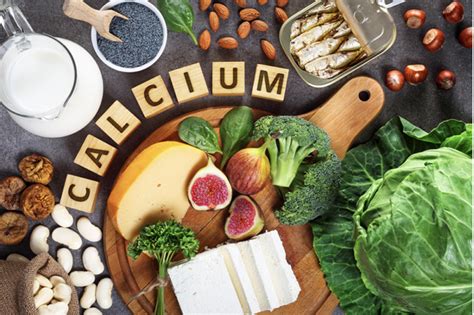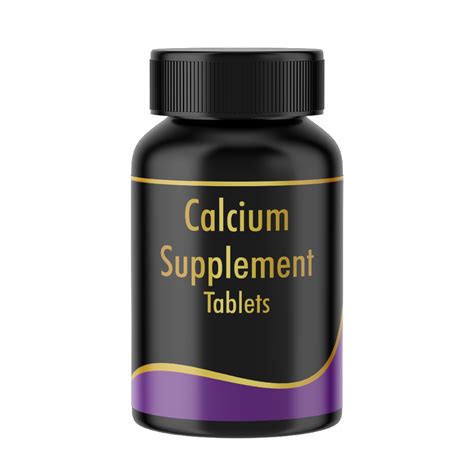Intro
Calcium is an essential mineral that plays a crucial role in maintaining strong bones and teeth, as well as supporting various bodily functions. With the increasing awareness of the importance of calcium in our diet, many people are looking for ways to incorporate more calcium-containing foods into their daily meals. A well-balanced diet that includes a variety of calcium-rich foods can help individuals maintain optimal bone health, reducing the risk of osteoporosis and fractures. In this article, we will delve into the world of calcium-containing foods, exploring their benefits, types, and ways to incorporate them into our diet.
The importance of calcium in our diet cannot be overstated. Calcium deficiency can lead to a range of health problems, including weakened bones, osteoporosis, and an increased risk of fractures. Furthermore, calcium plays a critical role in muscle function, nerve function, and heart health. With the demands of modern life, it is easy to neglect our diet and forget to include essential nutrients like calcium. However, by making informed food choices and incorporating calcium-rich foods into our meals, we can maintain optimal health and reduce the risk of chronic diseases.
A diet rich in calcium can have numerous benefits, from maintaining strong bones and teeth to supporting muscle function and heart health. Calcium-containing foods can be found in a variety of forms, including dairy products, leafy greens, and fortified foods. By understanding the different types of calcium-rich foods and how to incorporate them into our diet, we can take a proactive approach to maintaining our overall health and well-being. Whether you are looking to boost your bone health or simply want to ensure you are getting enough calcium in your diet, this article will provide you with the information and inspiration you need to make informed food choices.
Types of Calcium-Containing Foods

Calcium-containing foods can be broadly categorized into several groups, including dairy products, leafy greens, fortified foods, and other calcium-rich foods. Dairy products, such as milk, cheese, and yogurt, are some of the richest sources of calcium. Leafy greens, like kale, broccoli, and spinach, are also rich in calcium, as well as other essential nutrients like vitamins and minerals. Fortified foods, such as cereals and orange juice, can provide a significant amount of calcium, especially for those who are lactose intolerant or prefer a non-dairy diet.
Dairy Products
Dairy products are some of the richest sources of calcium, making them an excellent addition to a healthy diet. Milk, cheese, and yogurt are all high in calcium, with milk being one of the most calcium-dense foods available. Other dairy products, like butter and ice cream, also contain calcium, although in smaller amounts. When choosing dairy products, it is essential to opt for low-fat or fat-free options to minimize saturated fat intake.Leafy Greens
Leafy greens are a nutritious and delicious way to boost your calcium intake. Kale, broccoli, and spinach are all rich in calcium, as well as other essential nutrients like vitamins and minerals. These vegetables can be easily incorporated into meals, whether it's adding them to salads, sautéing them as a side dish, or blending them into smoothies. Other leafy greens, like collard greens and mustard greens, are also rich in calcium and can be used in a variety of dishes.Fortified Foods
Fortified foods can provide a significant amount of calcium, especially for those who are lactose intolerant or prefer a non-dairy diet. Cereals, orange juice, and plant-based milk are all common fortified foods that can help boost calcium intake. When choosing fortified foods, it is essential to check the nutrition label to ensure they contain a significant amount of calcium. Some fortified foods may also contain added sugars or artificial ingredients, so it's crucial to opt for whole, unprocessed foods whenever possible.Benefits of Calcium-Containing Foods

Calcium-containing foods offer numerous benefits, from maintaining strong bones and teeth to supporting muscle function and heart health. A diet rich in calcium can help reduce the risk of osteoporosis and fractures, as well as support overall health and well-being. Some of the key benefits of calcium-containing foods include:
- Maintaining strong bones and teeth
- Supporting muscle function and nerve function
- Reducing the risk of osteoporosis and fractures
- Supporting heart health and blood pressure regulation
- Promoting overall health and well-being
Strong Bones and Teeth
Calcium is essential for maintaining strong bones and teeth. A diet rich in calcium can help support bone growth and development, reducing the risk of osteoporosis and fractures. This is especially important for children and adolescents, as they are building their bone mass and density. Adults can also benefit from a calcium-rich diet, as it can help maintain bone health and reduce the risk of age-related bone loss.Muscle Function and Nerve Function
Calcium plays a critical role in muscle function and nerve function. It helps regulate muscle contractions and relaxations, as well as support nerve function and transmission. A diet rich in calcium can help support muscle health, reducing the risk of muscle cramps, spasms, and weakness. Calcium also supports nerve function, reducing the risk of numbness, tingling, and pain.Incorporating Calcium-Containing Foods into Your Diet

Incorporating calcium-containing foods into your diet can be easy and delicious. Here are some tips to help you boost your calcium intake:
- Start your day with a calcium-rich breakfast, such as oatmeal with milk or yogurt with fruit
- Add leafy greens to your salads, sauté them as a side dish, or blend them into smoothies
- Choose calcium-fortified foods, such as cereals and orange juice
- Incorporate dairy products into your meals, such as milk, cheese, and yogurt
- Try new recipes that feature calcium-rich foods, such as kale chips or broccoli soup
Breakfast Ideas
Breakfast is an excellent time to boost your calcium intake. Here are some delicious and calcium-rich breakfast ideas:- Oatmeal with milk and fruit
- Yogurt with granola and berries
- Smoothie bowl with spinach, banana, and almond milk
- Scrambled eggs with cheese and whole-grain toast
- Calcium-fortified cereal with milk and sliced banana
Lunch and Dinner Ideas
Lunch and dinner can also be great opportunities to incorporate calcium-rich foods into your diet. Here are some ideas:- Grilled cheese sandwich with whole-grain bread and a side salad
- Lentil soup with kale and whole-grain bread
- Baked salmon with roasted broccoli and quinoa
- Veggie stir-fry with tofu, spinach, and brown rice
- Chicken Caesar salad with whole-grain croutons and parmesan cheese
Calcium Supplements and Deficiency

While calcium-containing foods are the best way to boost your calcium intake, supplements can be helpful for those who are deficient or have a restricted diet. Calcium supplements can be found in various forms, including calcium carbonate, calcium citrate, and calcium phosphate. However, it's essential to consult with a healthcare professional before taking any supplements, as they can interact with medications and have side effects.
Calcium Deficiency
Calcium deficiency can lead to a range of health problems, including weakened bones, osteoporosis, and an increased risk of fractures. Other symptoms of calcium deficiency include:- Muscle cramps and spasms
- Numbness and tingling in the hands and feet
- Weakness and fatigue
- Poor appetite and nausea
- Confusion and disorientation
Calcium Toxicity
While calcium is essential for our health, excessive intake can lead to toxicity. Calcium toxicity can cause a range of symptoms, including:- Nausea and vomiting
- Abdominal pain and constipation
- Weakness and fatigue
- Confusion and disorientation
- Kidney stones and kidney damage
What are the best sources of calcium?
+Dairy products, leafy greens, and fortified foods are some of the best sources of calcium.
How much calcium do I need per day?
+The recommended daily intake of calcium varies by age and sex, but most adults need around 1,000 mg per day.
Can I get enough calcium from plant-based sources?
+Yes, plant-based sources like leafy greens, fortified foods, and tofu can provide enough calcium for a healthy diet.
In conclusion, calcium-containing foods are essential for maintaining strong bones and teeth, as well as supporting muscle function and heart health. By incorporating a variety of calcium-rich foods into your diet, you can reduce the risk of osteoporosis and fractures, as well as support overall health and well-being. Whether you prefer dairy products, leafy greens, or fortified foods, there are plenty of delicious and nutritious options to choose from. So why not start boosting your calcium intake today and take the first step towards a healthier, happier you? We invite you to share your favorite calcium-rich recipes, ask questions, or comment on your experience with calcium-containing foods.
